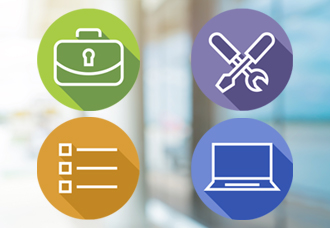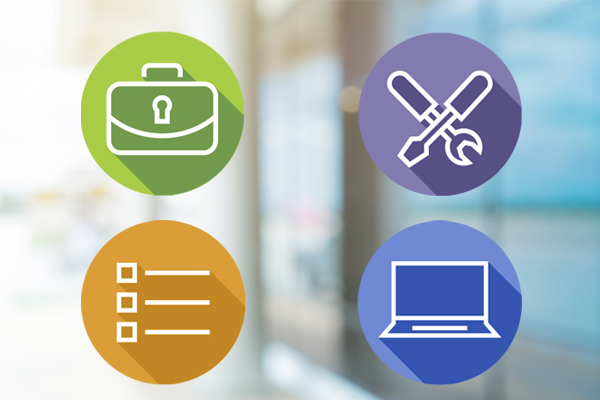The employment of Artificial Intelligence (AI) tools can impact compliance with the CPABC Code of Professional Conduct (Code) both directly and indirectly. Members in public practice and industry, students, and candidates are encouraged to review the Code when contemplating utilizing AI tools to ensure they understand how such AI usage may impact their compliance with the Code. Link to A review of the CPABC Code of Professional Conduct and how it may relate to AI tool employment.
04/08/2025
There may come a time when a client relationship ends. In such instances, CPA practitioners are reminded that they need to ensure they discharge their professional duties in line with the provisions of the CPABC Code of Professional Conduct (“ the Code”). Link to Professional Obligations When a Client Relationship Ends
08/22/2024
A firm performing “related services engagements” is required to comply with CSQM 1 and CSQM 2. The “related services engagements” includes conducting compilation engagements pursuant to CSRS 4200. Link to Completed Engagement Monitoring per CSQM for Sole Practitioners.
08/22/2024
Obtaining sufficient and appropriate evidence for debt covenants in assurance engagements can be complicated. Below are some considerations to help you along. Link to Loan Covenants.
08/01/2024
The purpose of the Practice Review Program is to protect the public through assessing a firm’s compliance with professional standards and by taking appropriate follow-up or remedial action in cases of non-compliance. See key practice review observations from the 2023-24 inspection year and upcoming areas of focus. Link to Practice Review: 2023-24 Findings and Areas of Focus
6/27/2024
CPAs are seen as trusted advisors and are well-known for their expertise in many areas. It is therefore not uncommon for CPAS to be provided with an opportunity to give back to their communities through volunteering.
published 02/05/2024
Learn about General Information Technology Controls (GITCs) as part of the revised Canadian Auditing Standard (CAS) 315, which includes new and updated material about the auditor’s responsibilities and understanding of IT. Link to FAQ – CAS 315 and the Auditor’s Responsibilities for General Information Technology Controls
published 1/22/2024
Starting January 22, 2024, corporations created under the Canada Business Corporations Act (CBCA) will be required to file information regarding individuals with significant control (ISC) with Corporations Canada.
published: 10/13/2023
CPAs may find themselves being asked to prepare tax returns for family, friends and close associates. It is important for CPAs to note that friends and close associates can be considered members of the public. Link to Key Considerations for CPAs Asked to Prepare Tax Returns.
published 08/08/2023
Practitioners must ensure they obtain management acknowledgement of the final compiled financial information as it relates to Canadian Standard on Related Services (CSRS) 4200 Compilation Engagements, and include this acknowledgement in their documentation. Link to Obtaining Managements’ Acknowledgement When Completing a CSRS 4200 Compilation Engagement.
published 08/08/2023
Practitioners love helping their clients, and their clients love asking for help. Where these requests are outside of the service provision that has been agreed upon, or when the request comes directly from a third party, a practitioner should think twice about fulfilling the requests. Even where the additional request is generated internally, a practitioner should proceed with caution. Link to Being helpful can cost you!
published 08/08/2023
There still remains some confusion among practitioners as it relates to the appropriate purpose and application of the Canadian Standard on Related Services (CSRS) 4200 Compilation Engagements. This article will explore additional specific topics that practitioners should carefully consider. Link to Inappropriate forms of communication under CSRS 4200 compilation engagements.
published 01/09/2023
Over the last several months, inspections of compilation engagements across Canada have highlighted some deficiencies in the application of the new Canadian Standard on Related Services (CSRS) 4200, Compilation Engagements. Link to Important Notice Regarding Compilation Engagements.
published 01/03/2023
The new quality management standards are, in short, good. They encourage all firms to consider their specifics, their clients, and their engagements when designing and implementing quality control procedures. This flexibility allows smaller firms to scale back their processes and procedures to address only those areas that are applicable. Link to Quality management – Implementation advice for smaller firms.
published 04/27/2022
CPA Canada has prepared an implementation tool for practitioners to assist with the implementation of the Canadian Standard on Quality Management (CSQM) 1. Link to CSQM 1 Implementation Tool.







